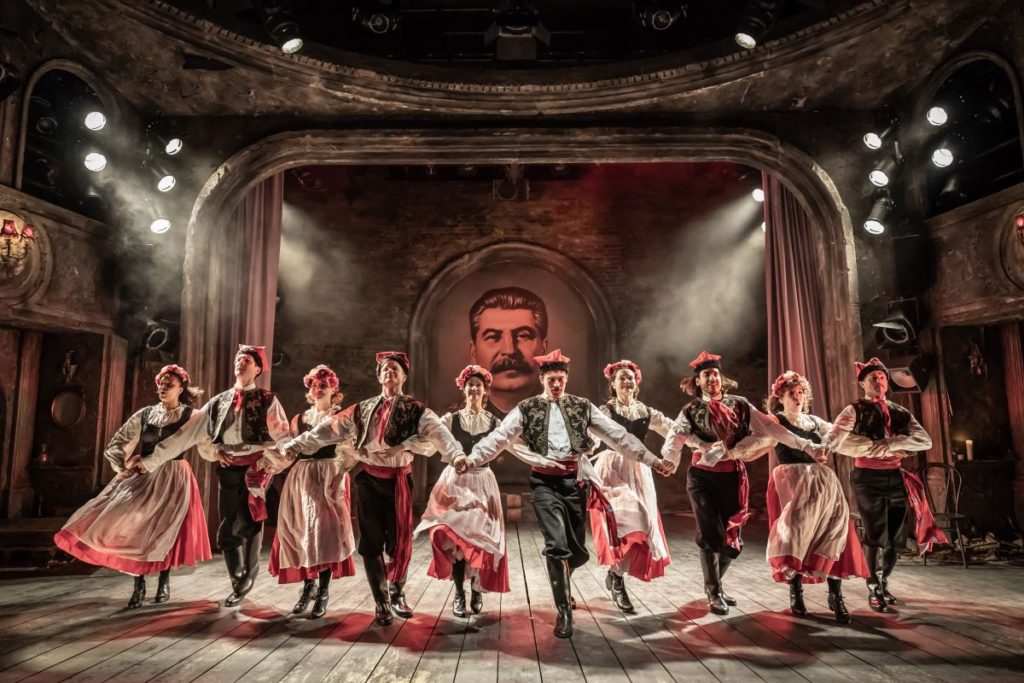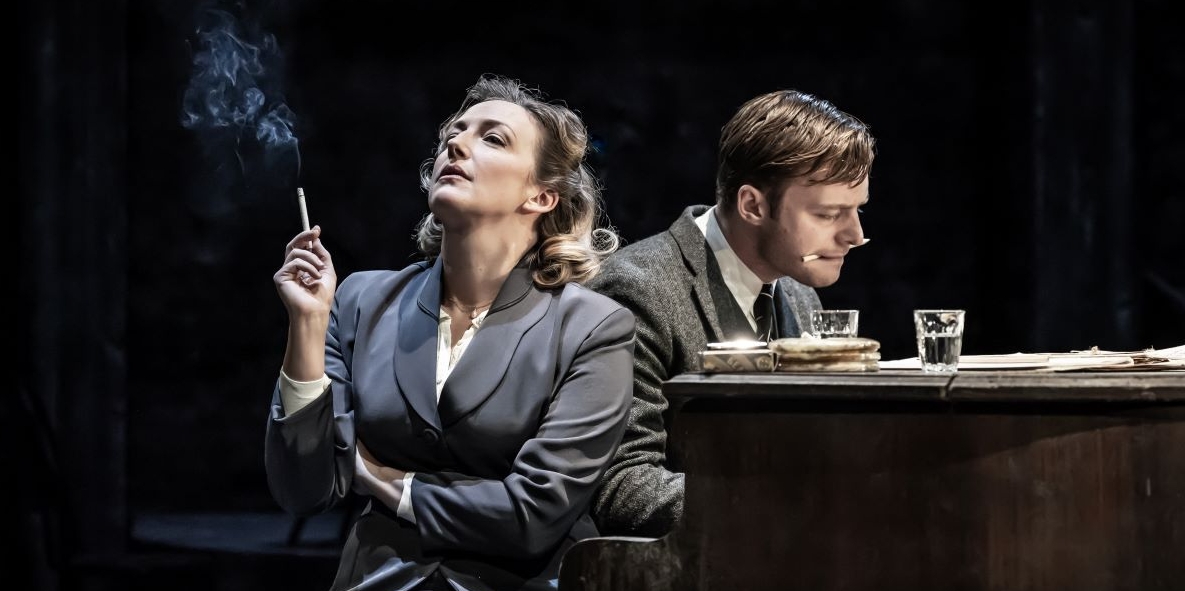The 20th Century saw numerous conflicts including the ‘Cold War’ which dominated the lives of millions of people who found themselves trapped behind the Iron Curtain of the Soviet Union’s communist ideology. This is the backdrop to this unfolding drama that begins in Poland and ends in Paris. It is a journey of passion, alienation, and hardship of living in exile.
Conor McPherson’s adaptation of Paweł Pawlikowski’s 2018 film ‘Cold War’ is enchanting and interesting. It retains the guts of the original narrative. Rupert Goold’s direction is a fine balance between inner emotions so magnificently explored through the camera in the original film, and this stage production. The opening scene is with a beautiful singing of ‘U mojej matecki’ (At My Mother’s), a song about a girl who is leaving her mother’s house, probably to get married. The song reflects her coming to terms with the change. This is a major theme of the main narrative, departure from the familiar and known into an uncertain new territory. This song is followed by two other folk songs from different parts of Poland. It is a sheer joy and an exquisite prelude to the unfolding drama.
Wiktor, a sophisticated and rather self-assured conductor and musicologist, is travelling through Polish villages with the choreographer and partner, Irena, and the manager Kaczmarek, auditioning aspiring singers and dancers for the choral ensemble they are tasked by the Communist Party to create. They record folk tunes, searching for unfamiliar yet original folk melodies. It is during one of those tiring sessions that a confident and ambitious Zula appears having heard of the selection for the choral ensemble. Wiktor and Zula quickly develop a strong, obsessive attraction and have sex after a performance. Wiktor and Irena are pressured by a government representative to include pro-Communist and pro-Stalinist propaganda in their performances and naturally they will be rewarded, and the troupe will also be allowed to tour East Germany. The business-driven opportunistic manager, Kaczmarek agrees.

The frustrations of having to tow the party line gradually erodes the desire to stay in Communist Poland. The desire for freedom and opportunities presents new realities.
The dramatic narrative interweaves the romance in Polish folk melodies and folk dance with the complexity of passionate love between Wiktor and Zula. Luke Thallon’s Wiktor is generally excellent. He pulls the right strings of his character, though his passion for Anya Chalotra’s Zula lacks the intensity to convince that she captured his heart and soul. His demeaner in Paris is utterly convincing. He projects the deep sense of being lonesome even when surrounded by people who love him. Anya Chalotra’s Zula sings well and dances beautifully. However, there is no chemistry between her and Thallon to convince that the two are passionately in love with each other. The final long kiss is more like the star at the top of a Christmas tree. It is cute.
Alex Young’s Irena competently plays the role of Wiktor’s affectionate partner, the choreographer, and the principled member of the troupe. Elliot Levey’s Kaczmarek is outstanding. His gestures, humour, and shrewdness, make him the driving force of the troupe.
The production arrangement of songs and music is an interesting amalgam of eight Polish folk songs, nine songs and pieces of music from Grammy Award-winner Elvis Costello. There was a touch of the Stalin Cantata and a bureaucrat’s ignorance of music is humorously exposed through Chopin’s Nocturne No 20.
This stage production is an interesting and enjoyable adaptation of a film that won numerous accolades and the Best Film Award at the 31st European Film Awards.
Well worth seeing.

